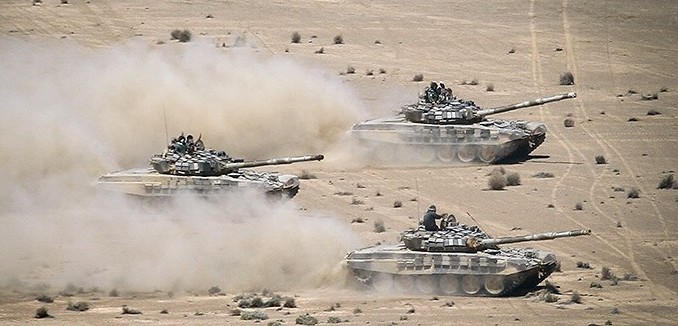Iran will be boosting its military budget using the $1.7 billion it received in January from the U.S. Treasury Department, Foundation for Defense of Democracies associate fellow Saeed Ghasseminejad wrote in a policy brief Thursday, citing Iranian media reports.
The process of allocating the funds, which the White House has said was to settle a payment order dating back to the days of the Shah, has been going on since April, Ghasseminejad wrote. Article 22 of the budget passed by parliament obligated the executive branch to transfer money it received from settling legal disputes to the military. Iranian President Hassan Rouhani asked that Article 22 be eliminated, but was overruled by parliament. Ayatollah Ali Khamenei, the supreme leader of Iran, also approved the transfer, spurring Rouhani to relent. The Guardian Council—a body of clerics that must approve all legislation—gave its assent to the budget last week. The influx of money will help boost the country’s 2017 military budget, which increased by 90 percent from 2016. Ghasseminenad wrote in greater detail about Iran’s military budget in a policy brief in June.
The bottom line, Ghasseminejad wrote, is that “there is no longer any doubt that the money the United States has paid to Iran will go to the Islamic Republic’s armed forces. It remains unclear how the military will spend it – potentially to prop up the Syrian regime, Hezbollah, Shiite militias in Iraq, or Houthi rebels in Yemen, or to buy heavy weaponry from Russia in contravention of the UN arms embargo.”
The first $400 million of the American payment was flown to Iran in pallets of foreign cash. This will allow Iran to purchase arms from Russia or China more easily, rather than going through the regular banking system, which could subject the parties involved to sanctions. Thus the money “will help finance Tehran’s overriding objectives: spreading its revolution and further destabilizing the Middle East,” Ghasseminejad added.
U.S. Treasury Secretary Jack Lew said last year that “Iran is expected to use new revenues chiefly to address those needs, including by shoring up its budget, building infrastructure, maintaining the stability of the rial, and attracting imports,” rather than funding terrorism. President Barack Obama similarly said last August in his speech at American University that “our best analysts expect the bulk of this revenue to go into spending that improves the economy and benefits the lives of the Iranian people.”
[Photo: Tasnim News ]




